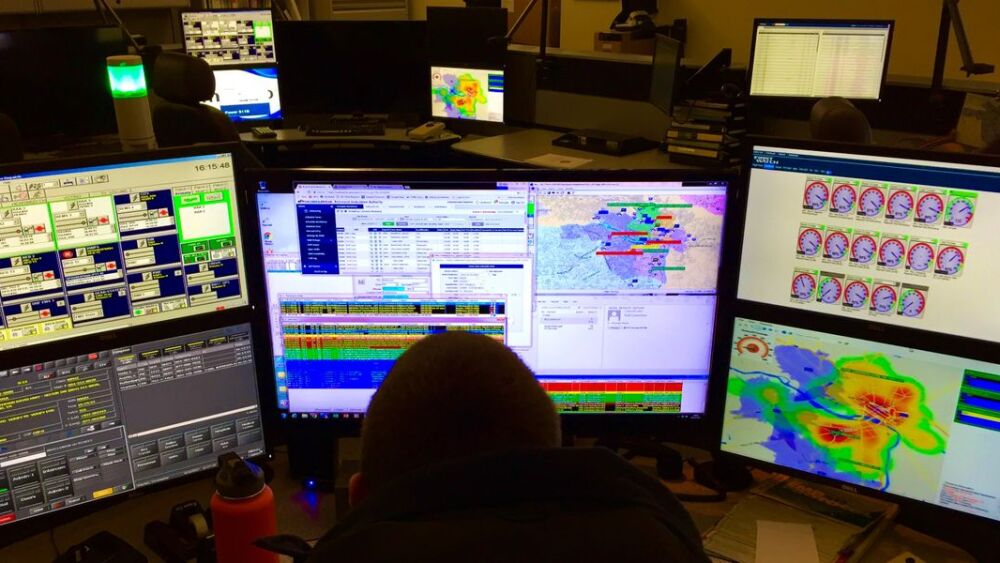Vinny Vella
The Philadelphia Inquirer
DELAWARE COUNTY, Pa. — Delaware County’s aging 911 radio system, which officials have long warned was subject to illegal hacking and other disruptions, will be overhauled through a $38 million upgrade approved by county council, officials said Tuesday.
A measure approved unanimously late last week authorized the purchase of 3,700 handheld radios for every police officer in the county, as well as most firefighters and emergency medics, and also provides infrastructure upgrades to 20 broadcast towers used by the system. The full upgrade is estimated to take three years to complete.
County Emergency Services Director Timothy Boyce said the contract with JVCKenwood was designed so the system could be built to accommodate future expansions as needed.
It’s a major improvement, he said, from the current system, a patchwork of older towers and mismatched radios that didn’t allow some officers from neighboring jurisdictions to communicate with each other.
Delaware County’s outdated emergency radio system is subject to hacking and interference. It will cost millions to modernize it.
“If someone calls 911, there’s a trust that we’ll get them help,” Boyce said. “Overcoming this will no doubt save lives, and increase our first responders’ ability to serve. When you have poor communications, the officer or medic is starting from a terrible spot.”
Since taking over the department in 2016, Boyce has emphasized the need to improve the county’s radio system, which hadn’t been upgraded since the 1970s. Council commissioned a study on how to improve the system in 2019, just months before the response to COVID-19 took priority.
Councilmember Christine Reuther said she appreciated that Boyce and colleagues still kept an eye on the radio issue while dealing with response to the pandemic.
“There is a significance of building something that leadership in this county knew was going to be required 20 years ago and decided not to do,” Reuther said. “It was something we promised to do when we got into office, and I’m glad we have a chance to vote on the contract tonight and see it through.”
Her colleague, Councilmember Kevin Madden, one of the officials who commissioned the study in 2019, said he was pleased that years of planning had come to fruition.
“It’s an incredibly complicated design, with a couple hundred pages’ worth of detail. It’s not like we picked one vendor out of five and then went with it,” Madden said. “And I think we’ve balanced urgency under our council with the importance of making sure we weren’t wasteful with taxpayer money.”
Under the old system, changes in weather patterns brought about interference from other radio and television signals, causing some calls between officers to drop or be delayed.
But the most pervasive issue, Boyce said, were unauthorized radio broadcasts from the public, including some from enterprising criminals who used their own radios to distract officers on patrol.
The major capital improvements approved by the council will strengthen and encrypt the radio signals, eliminating that risk. Some of the cost is offset by a $4.6 million state Redevelopment Assistance Capital Program grant awarded to the county in 2020, after Boyce presented Harrisburg lawmakers with evidence of that hacking.
The county’s decision to buy the radios will also help smaller departments, Boyce said, especially the many volunteer fire companies that serve less-populated areas.
“First responders make an important decision when it comes to funding,” Boyce said, “and now they wont have to sacrifice their communications, or their safety, in a budget pinch.”
___
(c)2022 The Philadelphia Inquirer


